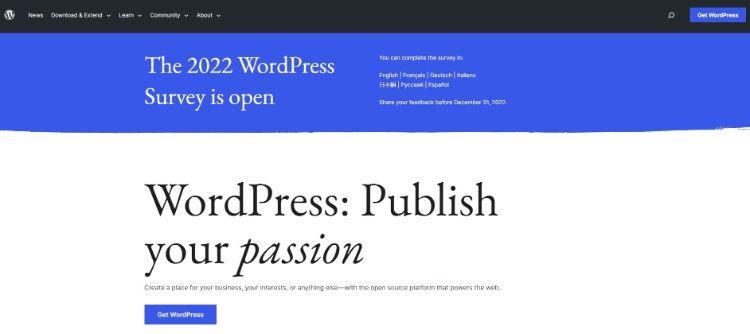Table of Contents
For avid readers and book enthusiasts, few pleasures compare to settling in with a good book and escaping into a different world. Finishing a story is always satisfying, yet it can leave you feeling a bit empty, especially when there’s no one around to discuss the plot, share thoughts about the characters, or recommend your latest find.

Starting a blog centered on books is an excellent way to connect with fellow readers who share your passion and enthusiasm for literature.
If you aim to become an online influencer by promoting books through blogging, here’s a detailed guide to help you get started.
How to Launch a Book Blog
Here are the essential steps to consider when creating your own book-focused blog.
1. Select a Niche for Your Blog
To turn your book blog into a source of income, it’s important to define a clear subject or specialization. Whether you’re sharing your thoughts on favorite genres or reviewing books that catch your interest, having a specific focus helps grab the attention of readers who share your interests. Your chosen niche should align with your knowledge and expertise to make your content authentic and engaging.
2. Pick a Domain Name and Arrange Hosting
A good domain name should clearly reflect your blog’s topic and be memorable for visitors. It acts as your online address—think of something catchy like “FictionFrenzy” if you focus on fiction reviews. Such a name will aid your site in ranking higher on search engines, making it easier for readers to find you. For more tips, check out advice on choosing the best blog name.
3. Install WordPress
Running a successful blog requires a reliable content management system. WordPress is the most popular and cost-effective platform available, often offered by hosting providers as an easy setup. Alternatively, you can use WordPress.com to create a free site—but keep in mind that this version limits customization options.
4. Customize Your Blog’s Layout and Design
Your blog’s appearance should reflect its niche and appeal to your target audience. Choose themes that are easy to navigate and visually engaging. To stand out, consider designing custom graphics with tools like Canva or Adobe Photoshop. Using plugins can also help you tailor your site’s look and functionality to your preferences.
5. Generate Engaging Content
Creating compelling content is the core purpose of any blogging platform. Your book reviews, articles on literary topics, or resource lists should captivate and inform your readers. Always aim to offer value, making your blog a trusted source of insights about books and reading.
6. Promote Your Blog Effectively
The only way to grow your readership is through active promotion. Utilize SEO strategies, social media marketing, and email campaigns to reach a wider audience and attract visitors to your site.
7. Earn Money from Your Blog
There are many monetization options, such as joining Amazon Associates for affiliate links or using Google AdSense for ad revenue. You might also consider sponsored posts or offering promotional services for authors seeking visibility. Building an email newsletter can further help you connect with your audience and promote products or events.
Your Options for Blogging Platforms
Here are some of the top platforms to host your book blog.
WordPress.org

WordPress remains one of the most popular and flexible options for creating a comprehensive and customizable book blog.Most popular blogging platforms provide easy options for customizing a wide variety of free themes using plugins. They also boast active online communities filled with tutorials and helpful resources, making it simple for beginners to get assistance when needed.
Wix is a top choice for new bloggers looking to set up a website quickly without needing coding skills. It offers an intuitive drag-and-drop builder and a large selection of professionally designed themes to give your site a distinctive appearance.
Squarespace is another widely used platform, known for its sleek designs and user-friendly interface. It enables users to create visually stunning blogs with minimal effort, thanks to its collection of pre-made templates that are easy to modify.
Zyro is an AI-powered website builder that allows users to craft professional-looking blogs using built-in tools and plugins. With Zyro, you can develop a blog from scratch rapidly, without any coding knowledge. It also provides numerous customizable free themes to help your website stand out.
Book bloggers can generate a variety of engaging content to attract more readers. Writing detailed book reviews is a popular way to share honest opinions and help readers decide whether to buy or borrow a book. Keeping up with the latest news about authors, publishers, and literary awards can also make your blog a go-to source for book-related updates. Covering events like book festivals, author talks, or awards ceremonies adds extra relevance.
Lists are a fun and informative way to showcase your book expertise. You might create themed lists such as top books for different age groups, seasonal favorites, or personal bucket lists like “Books to Read in a Lifetime.” For those eager to grow their blog quickly, conducting author interviews can provide exclusive content. Reaching out to authors directly or requesting review copies from publishers—such as through sites like NetGalley—can give you early access to new releases and inside information.
When reviewing ARCs (advanced reader copies), always follow the publisher’s review policies and include a disclaimer if you received the book for free. Engaging readers through discussion posts on topics like favorite book endings, recent releases, or controversial literary debates can foster a sense of community and encourage comments. Additionally, hosting or participating in reading challenges can motivate your audience to read more and help them stay committed to their goals.Reaching new audiences effectively is essential for growing your book-related platform. These efforts can target a variety of genres, from non-fiction and young adult fantasy to timeless classics.
Writing Advice
Many aspiring writers are eager to improve their craft. Offering tips on how to enhance writing skills and helping others discover their unique voice can be a valuable niche. Additionally, guiding them on the best ways to structure blog posts and reviews can establish you as an authority in this area. These activities help build your reputation as an expert in the book community.
Book-Themed Giveaways
Organizing contests and giveaways is a fantastic way to connect with your audience and attract new followers. You might start by offering one or two free books and then expand to larger competitions as your blog grows. Such activities not only boost engagement but also increase your blog’s visibility.
Behind-The-Scenes Looks At Publishing Houses
Providing readers with exclusive insights into the publishing industry can deepen their understanding of how books are created and marketed. You can arrange interviews with editors or publishers, sharing detailed posts about their processes and insider tips for aspiring authors. This behind-the-scenes access can make your blog a trusted resource for literary enthusiasts.
Tips For Successfully Running Your Book Blog
To ensure your blog thrives, consistency is key. Developing a regular posting schedule helps keep your audience engaged and eager for new content. Interacting with readers and other bloggers fosters relationships within the community, whether you’re just starting out or have been at it for some time. Participating in book giveaways can draw in fresh visitors and increase your page views. Offering honest, unbiased reviews of books establishes your credibility—you should highlight both the positives and negatives to build trust. Optimizing your posts with SEO techniques, such as strategic keywords and engaging headings, can improve your blog’s search engine ranking. Lastly, leveraging social media platforms extends your reach, helping you promote your content and attract a broader audience.
Making Money with Your Book Blog
Turning your passion into profit involves several strategies. Affiliate marketing lets you earn commissions by recommending products—simply join relevant programs and link to items in your reviews or posts. You can also incorporate ads through different networks, earning revenue based on clicks and views. Creating and selling original digital content like e-books or online courses related to literature provides another income stream. As your blog gains popularity, authors and publishers might approach you for sponsored posts, including reviews, interviews, or promotional tours, further boosting your revenue opportunities.
How To Start A Book Blog – FAQ
Audiobooks are perfectly acceptable on book blogs; you decide the formats you prefer to feature, whether written reviews, audiobooks, or podcasts. Book clubs, whether in person or online—such as Bookstagram communities on Instagram—are excellent ways for readers to connect and discuss their favorite titles. Your blog can include various formats, including text, images, audio, and video, allowing immense flexibility in content creation. The kinds of books you highlight are entirely up to you—literature, non-fiction, romance, science fiction, or any genre that sparks your interest. You can also utilize the WordPress sidebar with widgets like search boxes or recent posts to enhance navigation and user experience.
Wrap Up
Managing a book blog is an exciting yet demanding journey requiring dedication, creativity, and patience. Staying updated with industry trends, engaging your audience with compelling content, and building relationships within the community are crucial components. Remember that growth takes time—consistent effort can elevate your influence in the book blogging world. For further guidance, resources like SEO techniques can accelerate your growth by improving your visibility on search engines. Guest blogging is another effective approach to expanding your reach. Additionally, monetizing your blog through affiliate programs—for instance, linking to design tools like Canva—can turn your passion into a sustainable income stream, maximizing your blog’s potential.
